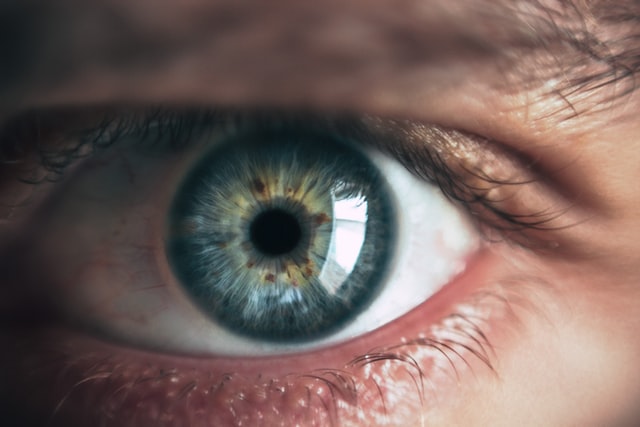Conjunctivochalasis, also known as mechanical dry eye, is a common eye problem mostly observed in primary eye care. The symptoms of this condition are very similar to those of dry eyes and are often mistaken for it. A large number of people above 60 years old have conjunctivochalasis. So, if you are above this age, it’s very crucial to understand the symptoms, causes, and treatment of this condition so that you can take the necessary steps to get treated if you suspect having it.
What Is Conjunctivochalasis?
Conjunctivochalasis is a common eye condition characterized by the excessive folding of the conjunctival skin. The folds accumulate between the eyelid margins and the globe. Luckily, the condition can easily be treated after diagnosis, and a patient can live a normal life after that.
When mechanical dry eye does not show any symptoms, eye doctors may classify it as a normal eye variant caused by the aging process. It can also cause symptoms that may start like those of dry eyes and worsen over time.
Although it is common among older people, conjunctivochalasis has also been found in younger people. However, its severity increases with age. Patients with this condition also experience pain that gets worse when blinking or when they move their eyes.
What Are The Causes Of Conjunctivochalasis?
Conjunctivochalasis is caused by the gradual stretching and thinning of the conjunctiva. Some cases can also be caused by eye inflammation caused by conditions like aqueous tear deficiency and blepharitis. Blepharitis is not always harmful but can cause conjunctivochalasis.
Some eye surgeries may also increase the chances of one developing conjunctivochalasis. Another cause of conjunctivochalasis is the prolonged use of contact lenses. This happens when you wear contacts for a very long time, without taking a break. It can also happen if a person misuses daily disposable contacts and doesn’t remove them when sleeping.
Thyroid dysfunctions can also cause the condition. People who have an overactive or underactive thyroid are at high risk of developing conjunctivochalasis. Some medications, such as antibiotics, antiretrovirals, and anti-malarial, may also cause conjunctivochalasis.

What Are The Symptoms Of Conjunctivochalasis?
Sometimes, you may not even realize you have conjunctivochalasis since it can fail to show any symptoms. In such a case, it can only be detected using an eye examination. some of the symptoms that can help you discover mechanical dry eye include:
- Eye soreness
- Eye dryness
- Discharge from the eye
- Blurred vision
- Eye stiffness after waking up
- Subconjunctival hemorrhage
- A stinging or burning feeling in the eyes
- Eyes feeling tired even after sufficient rest
How Is Conjunctivochalasis Treated?
If you have symptoms of conjunctivochalasis, it’s important that you seek treatment promptly, as the symptoms will not go away without intervention from an eye doctor. Although conjunctivochalasis can be treated easily, sometimes it gets hard due to misdiagnosis. This is because it’s often mistaken with dry eyes, and differentiating the two can only be done through an eye exam.
After diagnosis, treatment methods vary depending on whether the condition is symptomatic or asymptomatic. If it’s asymptomatic, an eye doctor may prescribe lubricating eye drops to ease discomfort in patients. They may also rule out causes of conjunctivochalasis by recommending tests. These include dry eye syndrome, allergies, and cancerous tumors around the eye. If there is any inflammation, an ophthalmologist may prescribe topical corticosteroids to reduce it. Antihistamines may also be used in cases where there is an allergic conjunctivitis component.
If a person has symptoms, surgery may be used for treatment. This is mostly done when medications are not effective in easing the symptoms. An ophthalmologist considers various factors such as the patient’s age, if they have been wearing contacts and for how long, and their medical history.
The surgical process involves the removal of the excess conjunctival tissue. It is then replaced using an amniotic membrane such as Prokera cryopreserved amniotic membrane with natural anti-scarring and anti-inflammatory properties. These properties promote the healing process and also reduce discomfort after surgery.

What Are The Complications Of Conjunctivochalasis?
If not treated, conjunctivochalasis can cause corneal ulcers and pain, which gets worse with time. People with conditions like high blood pressure and diabetes should be more careful since their symptoms may worsen when they are not treated on time.
Difference Between Conjunctivochalasis and Dry Eye
Conjunctivochalasis and dry eye are often confused since they present similar symptoms most of the time. However, the two are different. Conjunctivochalasis is caused by the thinning and stretching of the conjunctiva, while dry eyes are caused by poor quality tears or inadequate tears.
However, the two conditions also have some similarities, such as being common among older people. They also have some similar symptoms, such as blurred vision and a burning sensation in the eyes.
Can Conjunctivochalasis Be Prevented?
You cannot prevent conjunctivochalasis since it is mostly caused by old age. The only thing you can do is go for frequent eye check-ups for this condition if you are 60 years and above. Early detection ensures that the condition does not worsen with time.
Learning about conjunctivochalasis helps you know whether you are suffering from the condition or not. It also prepares you for what to expect during treatment. Since its symptoms can mimic those of other eye conditions, it’s good to visit an ophthalmologist so that they can conduct the necessary tests and recommend a suitable treatment method. Most eye conditions are easily treatable and manageable when detected early. Some of them can cause permanent vision damage when not detected on time. That’s why it’s advisable to seek treatment any time there are changes in your eyes. Regular eye exams are also important, even when there are no symptoms of a disease. To get more information about conjunctivochalasis, visit https://discovermde.com/.



































